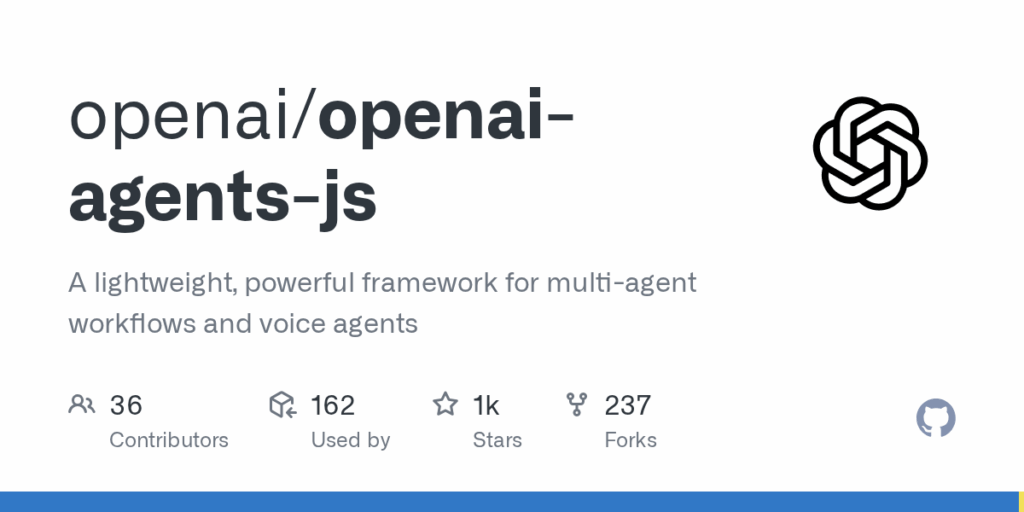openai agents js
Basic Information
The repository provides the OpenAI Agents SDK for JavaScript and TypeScript, a lightweight framework for building and orchestrating multi-agent workflows. It is designed for developers who need to compose agents that use LLMs, call external tools, hand off control between specialized agents, and enforce input/output validation. The SDK is provider-agnostic and supports OpenAI APIs as well as broader model support through an adapter. It includes realtime voice agent support for browser environments, a separate optimized browser package, and local MCP server support for giving agents access to local tools. The project includes examples, documentation, and a tracing UI to inspect and debug agent runs. Supported runtimes include Node.js 22+, Deno, and Bun, with experimental Cloudflare Workers compatibility.








